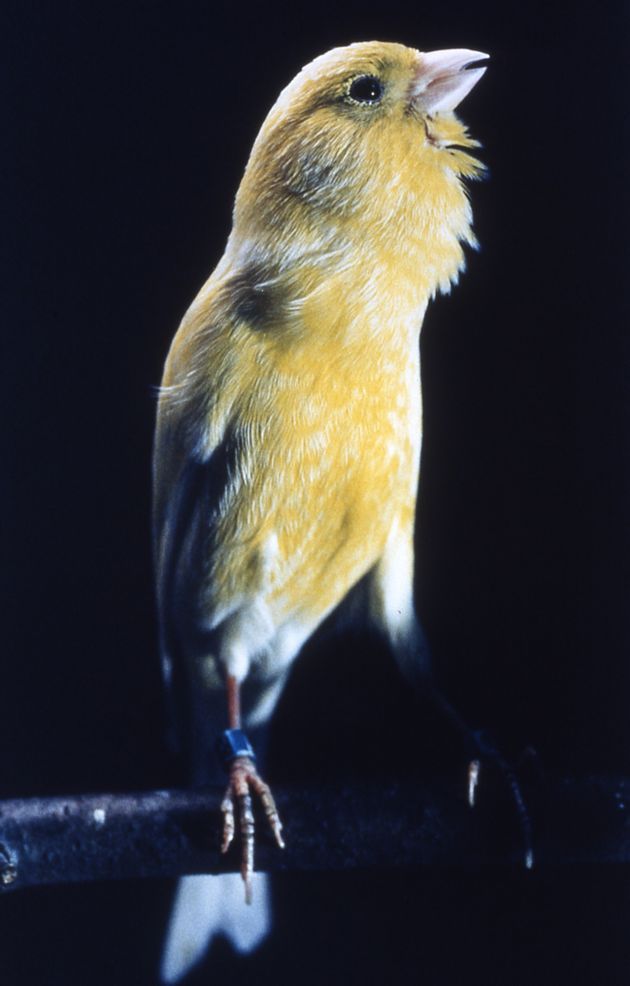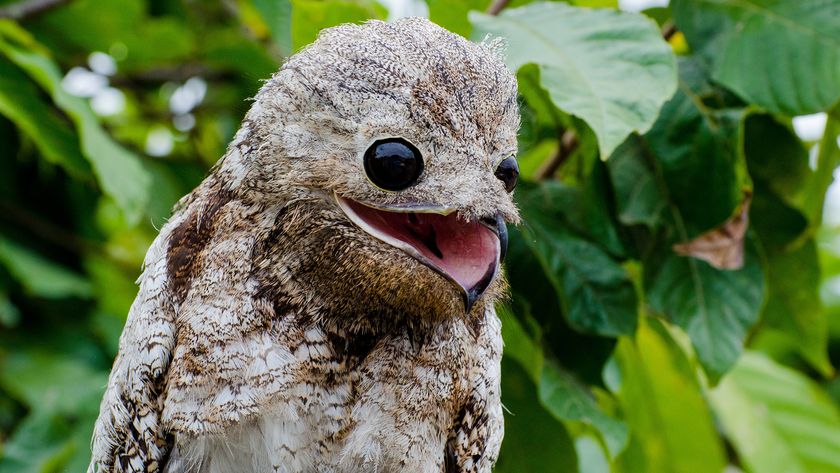Canaries Change Their Tune

Young male canaries can be taught to sing songs that sound like video game beeps. But wait, there's more. Once it's time to woo females with love songs, their repertoire switches to more traditional stylings.
The new findings, announced last week, surprised researchers studying the innate singing abilities of male canaries.
There was already substantial evidence that canaries are natural born singers - a canary born deaf, or raised alone in a soundproof box, will grow up to sing a normal adult song. Also, canary chicks beg for food with added gusto when a song specific to their species is played, even if they've never heard it before.
There's a sort of universal grammar for canary songs, and canaries follow it strictly. First, songs consist of specific syllables, similar to the phonemes in human language. Canaries know 30 to 40 of these elementary units.
Second, when constructing a song, canaries repeat a syllable for one second before jumping quickly to a different note.
"It's as though you have 26 letters of the alphabet and it's as if the bird goes CCCCC, HHHHH, QQQQQ. They use 60 to 70 percent of their syllables per song," Tim Gardner of MIT told LiveScience.
Most canaries learn their songs from their dads, or other adult males. But researchers have long known that certain innate cues also play a role in learning songs.
Sign up for the Live Science daily newsletter now
Get the world’s most fascinating discoveries delivered straight to your inbox.
"We wanted to study to what extent these birds are imitating freely and to what extent they are constrained by innate processes," Gardner said.
To test the importance of these cues, the researchers placed 30-day-old male canaries, who had never heard a song of any kind, in sound-proof rooms. Next, they piped in computer-generated music that violated canary rules.
"The computer song was very different in that it never repeated the syllable twice," Gardner explained. The computer song sounded like video game sound effects, with a descending series of notes, no repetition, and no distinct classes of syllables.
It's like the difference between "lalalalala, dododododo, bebebebebe" and something like "la-be-ta-do-si."
"The first surprise was that they were able to imitate these abnormal songs with such high accuracy," said Gardner. "They imitated in almost perfect pitch in some cases."
The second surprise was that when the canaries reached adulthood, when they would woo females with their songs, the innate cues kicked in and they began singing traditional songs.
"As they entered adulthood, they entered a process of rearranging. They used computer syllables, but sang them with traditional canary syntax, repeating each one for one second," Gardner said.
The canaries may have sung with mixed strategies early on, but once they hit 6 to 8 months of age, the emphasis on traditional song structure drastically increased. In two cases, where the researchers induced adulthood by injecting the canary with testosterone, and setting the mood for mating by altering the length of day, the canaries changed their tune in as few as five days.
Even though they predominantly sang the traditional songs, every once and a while they would bust out with a computer inspired tune.
"They sang both song types and could rapidly switch between the two," Gardner said. "It's like humans switching between two different languages but using the same sounds."
Canaries are good models for studying vocal learning. Along with other songbirds, humans, and some whales and bats, canaries are one of the few members of the animal world that can hear and imitate sounds.
Gardner's research, which was originally done at Rockefeller University's Laboratory of Animal Behavior, was published in the May 13 issue of Science.













